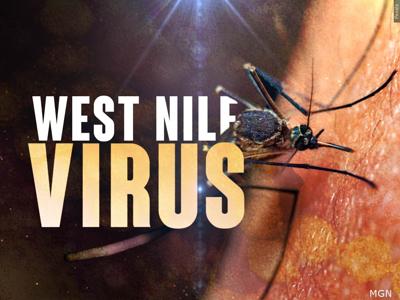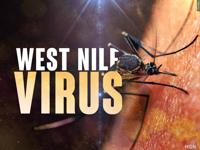DOVER, Del. — West Nile virus has been confirmed in Delaware for the first time in 2025, detected in sentinel chickens used by the state to monitor mosquito-borne illnesses. So far, no human cases have been reported this year, but state officials are urging horse owners to vaccinate their animals and for the public to take steps to reduce mosquito exposure.
The Department of Natural Resources and Environmental Control’s Mosquito Control Section detected the virus in chickens at three separate monitoring sites in New Castle County during routine testing on Aug. 11. Lab results confirmed the presence of the virus on Aug. 13, according to DNREC and the Division of Public Health.
“The date of these detects is slightly later than our typical first detection date, historically the last week in July or first week in August – but is consistent with other WNV activity thus far this summer elsewhere in the mid-Atlantic and Northeast,” said Tom Moran, DNREC Mosquito Control Section Administrator.
Sentinel chickens do not get sick from the virus but develop antibodies when bitten by infected mosquitoes. Their role is critical in helping DNREC identify where the virus is circulating and what mosquito control efforts may be needed.
The agency is now conducting further surveillance to determine which mosquito species are in the affected areas, as only certain types can transmit WNV or eastern equine encephalitis to people and horses.
While no human cases of WNV have been confirmed in Delaware this year, the state reported one probable neuroinvasive case in 2024. Delaware health officials are reminding people that risk of mosquito-borne illnesses continues through mid-October, when cooler weather typically reduces mosquito activity.
About 20% of people infected with WNV may experience mild symptoms like fever, body aches, nausea, and rash. In more severe cases, the virus can lead to neurological issues, paralysis, and even death.
The Delaware Department of Agriculture is also advising horse owners to act now. There were six equine cases of WNV in 2024, and although there have been no equine cases yet this year, the State Veterinarian’s Office strongly encourages horse owners to vaccinate against both WNV and EEE.
Vaccination is considered highly effective, but horses need annual booster shots. Equine infections are often deadly — WNV kills about 30% of horses that contract it, and EEE can be fatal in up to 90% of cases.
Horse owners are also advised to use mosquito repellents approved for equines, keep animals indoors during dawn and dusk, use fans in stalls to deter mosquitoes, and regularly clean water troughs.
To control mosquito populations, DNREC may conduct spraying in affected areas depending on the number and type of mosquitoes found. People who live in Delaware can also help by eliminating standing water around homes — including in birdbaths, trashcans, tires, clogged gutters, and unused pools.
Health officials recommend wearing long-sleeved clothing, using insect repellent with DEET, and avoiding outdoor activity at dawn and dusk to reduce the risk of bites.
More information about mosquito-borne illnesses and how to report concerns is available through DNREC and the Division of Public Health.







